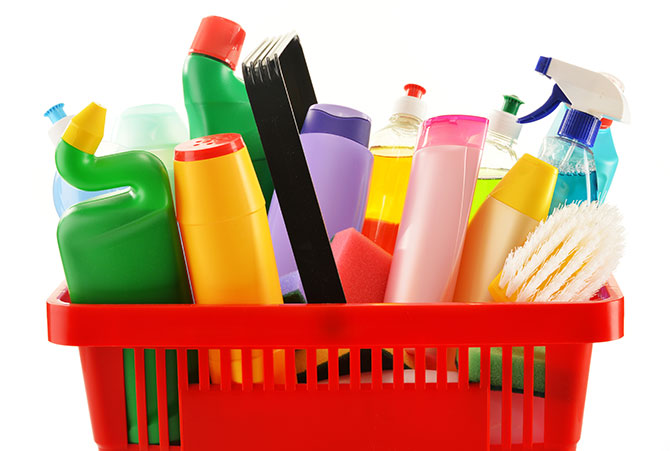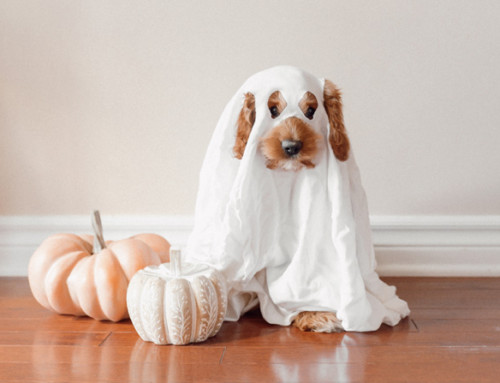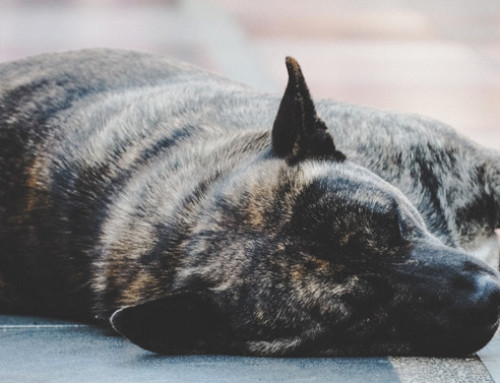Many ordinary household substances or foodstuffs that are completely harmless to humans can actually have a devastating effect if ingested by animals. Just because it is safe for us, that doesn’t mean that it fine for your beloved dog or cat. To keep your pet out of harm’s way, here is a list of the most common pet poisons around your home, so that you can keep them out of reach and make sure your pet is not exposed to risk.
1. Prescription medications
While drugs may help to make us feel better and for some even save lives, many prescription drugs can have the opposite effect on our pets, even if they ingest just a small amount. Some of the most common prescription medications that are harmful for pets include:
- Pain and anti-inflammatory medications – These can cause stomach and intestinal ulcers, or even kidney failure.
- Antidepressants – These can result in vomiting as well as more serious conditions such as increases in heart rate and blood pressure. They can also cause seizures.
- Blood pressure medications.
2. Over-the-counter medications
It’s not only prescription medications that can cause issues; all those seemingly innocent medicines that you buy over the counter can have a damaging effect on dogs and cats. Make sure that you keep any medicines containing paracetamol, ibuprofen, or those containing naproxen such as Aleve, out of the reach of your pets, as it can cause liver damage in dogs and anaemia in cats. Don’t forget that herbal and natural products such as fish oils and joint supplements can also be poisonous for your pets. The best way is to just keep all tablets and capsules out of reach of your pets, just as you would keep them out of reach of your children, just in case.
3. Insecticides
Even if you’ve bought an insecticide with the intention of treating your pet, it can still prove dangerous if the pet gets hold of the medicine itself. Insecticides such as tick and flea treatments can prove extremely dangerous if your pet ingests them, or if you overdose a small animal.
4. Pet medications
Pet medications are designed to be administered by humans and not by animal. If your pet is prescribed any medication by their vet, ensure that it is kept in a safe place. This includes painkillers and dewormers; many pet medications are meat flavoured and extremely tempting for animals.
5. Household products
This can cover anything from cleaning products to fire logs. Household products are a leading cause of poisoning amongst pets, and can cause problems with both the stomach and the respiratory tract, as well as chemical burns, renal failure, and ultimately death.
Pets are especially at risk from the chemicals you use for cleaning your pool as well as paint thinners. And while you may not have much use for antifreeze, the ethylene glycol in this type of product and in motor oils can attract pets due to its sweet taste, but just a teaspoon can cause kidney failure in cats.
6. Our food
As much as we find chocolate irresistible and can’t get enough of that spicy dip, many of our foods are poisonous to dogs as they have a completely different metabolism to humans. In particular, never give your dog:
- Chocolate – It contains methylxanthines that can cause vomiting and even death. Dark chocolate is the biggest culprit, although the milk and white varieties can also cause problems.
- Coffee and caffeine – These contain the same dangerous chemicals as chocolate.
- Grapes and raisins – Have been known to cause kidney failure for our canine friends.
- Onions – These oxidise haemoglobin in the red blood cells, forming clumps that mean oxygen isn’t carried as efficiently. This means that dogs can end up severely anaemic even days after consuming onions.
- Avocado – You may love guacamole, but avocados contain persin, which can cause vomiting and diarrhoea in dogs.
- Macadamia nuts – Can cause weakness, overheating, and vomiting.
- Xylitol – A sweetener that’s used in all kinds of products, including sugar free gum and toothpaste, and has been known to cause seizure and liver failure as a result of a rapid drop in blood pressure.
- Alcohol – Never be tempted to see how your dog will react to alcohol! It may cause vomiting, breathing problems, coma, and death.
7. Don’t forget the garden
While your dog may love to mooch around the garden, a lot of the plants we love can be dangerous for our pets. The following plants are particularly dangerous for dogs and cats:
- Azaleas and rhododendrons – Can cause diarrhoea and may lead to coma and death.
- Tulips and daffodils – Although these look gorgeous and herald the arrival of spring, should your dog decide to have a nibble, they can cause stomach problems, an increased heart rate and even convulsions.
- Lilies – A cause of kidney failure if eaten by cats.
- Sago palms – Popular in Australian gardens, eating just a few seeds may be enough to make your dog vomit, and may even result in seizures and liver failure.
- Japanese yew – Highly toxic and the smallest amount can poison even a healthy dog.
- Anything that you may use to fertilise your plants and lawn can also have the potential to cause problems for your pets, so always read the instructions carefully.
8. Rodenticides
These are potentially very dangerous if ingested by your pets. The specific symptoms will depend on the kind of poison, although you may not see any symptoms for several days. Don’t forget that your pet may not have ingested the rodenticide directly, but may have even eaten the poisoned rodent. If you’re planning to use rodenticides around your house or garden, keep your petys indoors until you’ve solved your rodent problem. Snail and slug bait and ant poisons are also potentially dangerous.
9. Batteries
Toxic to both dogs and cats, batteries can lead to ulcers in the mouth, oesophagus, and stomach, with disastrous consequences.
10. Zinc, lead, and other heavy metals
Keep your small change out of the way, as the zinc found in coins can cause zinc toxicity, leading to anaemia, liver, kidney, or heart problems. Always make sure that you store lead fishing weights and metal toys safely.







Leave A Comment